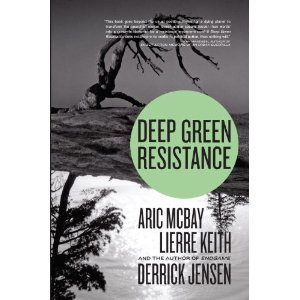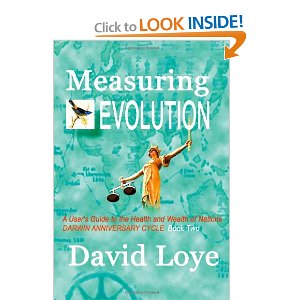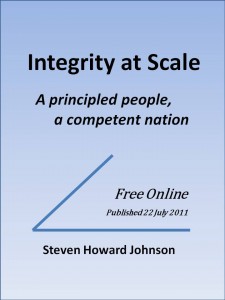
Juliana Geran Pilon (Author)
EDIT of 10 Sep 2011 to add more specifics and a concluding judgment.
I am delighted to see that Look Inside the Book has been activated and urge one and all to look over the table of contents and then buy the book. This is a preliminary review, mostly because it causes me pain to see no review at all on this important work. A copy of the book is on the way to me from the publisher. I will insert my substantive additional comments in a few days.
The book is in the Ada Bozeman tradition, and brings back to mind my continuing recommendation that no one be allowed to graduate from any serious international studies or international security course without reading at least the 25-page introduction, but ideally the full work:
She is to intelligence and statecraft what Will and Ariel Durant are to the study of history.
It distresses me to observe that we have not come far since this book was published, with many failures across the fifteen slices of human intelligence (HUMINT) among which are included the Human Terrain Teams (HTT) that I believe should be absorbed into the new active duty Civil Affairs Brigade with regional battalions. This would be an excellent time to hold a conference and do a follow-on book, this time integrating both the full spectrum of HUMINT capabilities, and the new meme, Multinational, Multiagency, Multidisciplinary, Multidomain Information-Sharing and Sense-Making (M4IS2).
Within this book, several of the chapters stand out for me:
“Hybrid Wars” by Col John J. mccuen, USA (Ret)
QUOTE (75): “Hybrid war appears new in that it requires simultaneous rather than sequential success in these diverse but related ‘population battlegrounds.'”
“Avoiding the Cookie Cutter Approach to Culture: Lessons Learned from Operations in East Africa,” by Maj Christopher H. Varhola USAR and LtCol Laura R. Varhola, USA
QUOTE (156): Inadequate preparation and planning (today) “Despite the lessons learned in Iraq, operations like those ongoing in Kenya and Tanzania are marked by high personnel turnover. Moverow, most of the personnel desployed there have received little or no training on the region, have no Swahili language ability, and do not have a chain of command insisting that they learn the indigneous language in situ [which would not matter since they rotate out so quickly.”
Key lessons not learned in Africa Command (AFRICOM):
01 Mistaking the power of tribal identity
02 Overlooking cultural complexity
03 Dubious public affairs efforts
04 Misunderstanding religious influence
05 Ignoring economic and power relations
I am stunned–stunned beyond belief–that military commanders desperate for a culture belly-button have tended to appoint the predominantly Christian chaplains to that position. Talk about the blind leading the deaf.
“Fourth Generation Warfare evolves, Fifth Emerges,” by Col T. X. Hammes, USMC (Ret).
QUOTE (312): Fifth-generation warfare will result from the continued shift of political and social loyalties to causes rather than nations.”
Col Hammes provides a very tight opening on how most of the US Government refused to take 4th Generation warfare seriously (even after Al Qaeda stated that this was their focus), and does a nice job of showing how all generations of warfare continue to be present while fifth generation emerges in which the emphasis is on a global strategic narrative (information operations) with supporting violent actions.
The book ends with an all too short piece from Antulio Echevarria II, one of the top scholars at the U.S. Army's Strategic Studies Institute (SSI), on “Wars of Ideas and the War of Ideas, and that is perhaps the irony of this superb work brouight together by editor Juliana Geran Pilon: despite the excellence of this specific book, and the coherence of the contributions from all of the authors, the US Government generally, including the Department of State, and the Department of Defense more specficially, are in the toilet when it comes to recognizing the cultural nuances of confrontation in the 21st Century.
I am reminded of Tony Zinni's brilliant distinction among the six different wars that were waged in Viet-Nam all at the same time depending the geographic and demographic terrain, this author takes the concept a step further to posit something that does not exist but should: Whole of Government Multinational Multifunctional War-Peace Spectrum Operations–full court press on all fronts, not just the military front.
Here are a tiny handful of books that I respect along with this one, on this topic. The US Government is massively ignorant about reality and especially about cultural nuances, so all of these books are vital to anyone who has aspirations of public or private service in the international arena, who wishes to display integrity in all respects. Any fool can lecture the “other,” understanding them is quite another matter.
Solving the People Puzzle: Cultural Intelligence and Special Operations Forces
Sacred Economics: Money, Gift, and Society in the Age of Transition
Violent Politics: A History of Insurgency, Terrorism, and Guerrilla War, from the American Revolution to Iraq
One Man, One Cow, One Planet
Grand Strategies: Literature, Statecraft, and World Order
God and Science: Coming Full Circle?
Holistic Darwinism: Synergy, Cybernetics, and the Bioeconomics of Evolution
Anthropologists in the Public Sphere: Speaking Out on War, Peace, and American Power
Anthropological Intelligence: The Deployment and Neglect of American Anthropology in the Second World War








